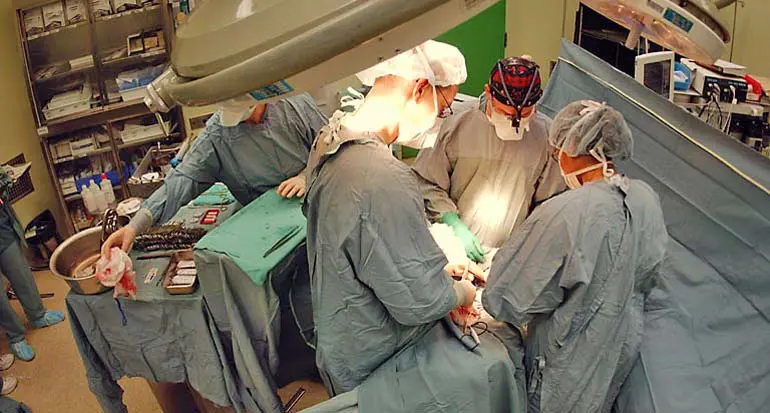Your Chance of Being the Victim of a Medical Error is Significantly Higher at Lower-Rated Hospitals
Medical errors are the third leading cause of death in the United States, behind cancer and heart disease. While you may have heard this statistic before, you may not realize that your chance of being the victim of a medical error is significantly higher in a lower-rated hospital. According to recent analysis, hospitals which received lower Leapfrog Ratings were more likely to make costly and fatal medical errors and the risk of contracting a deadly infection is higher in these institutions.

Since 2012, Leapfrog has been assigning grades to hospitals based on safety and quality. These grades are significantly tougher than the grades the government gives to hospitals and care facilities. Earlier this month, Leapfrog released its latest rankings, and 168 hospitals across the country received failing or near-failing classifications.
Among the hospitals on the list were the following Pennsylvania Hospitals, which all received D grades:
- Einstein Medical Center in Elkins Park
- Moses Taylor Hospital in Scranton
- Guthrie Robert Packer Hospital in Sayre
- Allegheny Valley Hospital in Natrona Heights
- Allegheny General Hospital in Pittsburgh
- Saint Vincent Hospital in Erie
According to the report, a third of the more than 2,600 hospitals that were graded received an A grade. This was encouraging news for patients across the country. A quarter of the hospitals received a grade of a B and 36% of hospitals received a C grade. Only 6% got a D rating.
So what do those grades really mean? Leapfrog found that patients at C-rated hospitals faced an 88% greater risk of avoidable deaths, while patients at B-rated hospitals had just a 35% greater risk of avoidable death through medical errors. Sadly, only 50% of eligible hospitals agree to provide the voluntary data needed to make these grades, such as medication safety, hand hygiene, intensive care unit doctor coverage, and C-section rates.
When Medical Errors Become Medical Malpractice
Not every medical error is considered medical malpractice. While doctors and healthcare professionals have an obligation to uphold a high standard of care for their patients, mistakes do occur. However, medical malpractice isn’t just making a minor mistake. Medical malpractice is unreasonable or careless conduct that results in injury to a patient. Leaving surgical sponges inside of a patient, prescribing too much medication for a patient, or failing to monitor a patient closely during surgery or during labor are all examples of medical malpractice.
In order to prove medical malpractice, your attorney must establish three (3) important points:
- There was a doctor/patient relationship between the patient and the healthcare provider
- The doctor deviated from accepted standards of medical practice (i.e., ran medical red lights)
- The careless conduct caused the patient to suffer injuries/damages such as lost wages, medical bills, or pain and suffering
A medical error, on the other hand, might be an administering an incorrect medication to the patient which caused no harm or the failure of a nurse to check on a patient every hour when the patient had no complications or an unforeseen complication to anesthesia. While a claim for damages may still be filed, the error itself might not fall under the category of medical malpractice.
Before deciding whether you suffered a medical error or medical malpractice, your attorney will seek to answer two very important questions: (1) “Would a reasonable medical professional have made the same diagnosis or prescribed the same treatment?” and (2) “Did the conduct in question cause harm to the patient?” If the answer to these questions is yes, then you may have cause to file a medical malpractice claim against the negligent healthcare professional or institution.
Due to the complexities surrounding medical errors and medical malpractice cases, it is highly recommended that you speak to an attorney with extensive experience representing victims of medical errors and malpractice. Your attorney can review the details of your case to help you choose the legal path that is best for you.
Contact Our Pennsylvania and New Jersey Medical Malpractice Lawyers
The medical malpractice attorneys at McLaughlin & Lauricella, P.C., have more than 100 years of experience representing injured patients and their families across Philadelphia, Berks, Bucks, Dauphin, Delaware, Lackawanna, Lehigh, Luzerne, Montgomery, and Northampton Counties, as well as in the State of New Jersey. Contact us today toll-free at 1-855-633-6251 or fill out our confidential contact form to learn more about your legal options.



